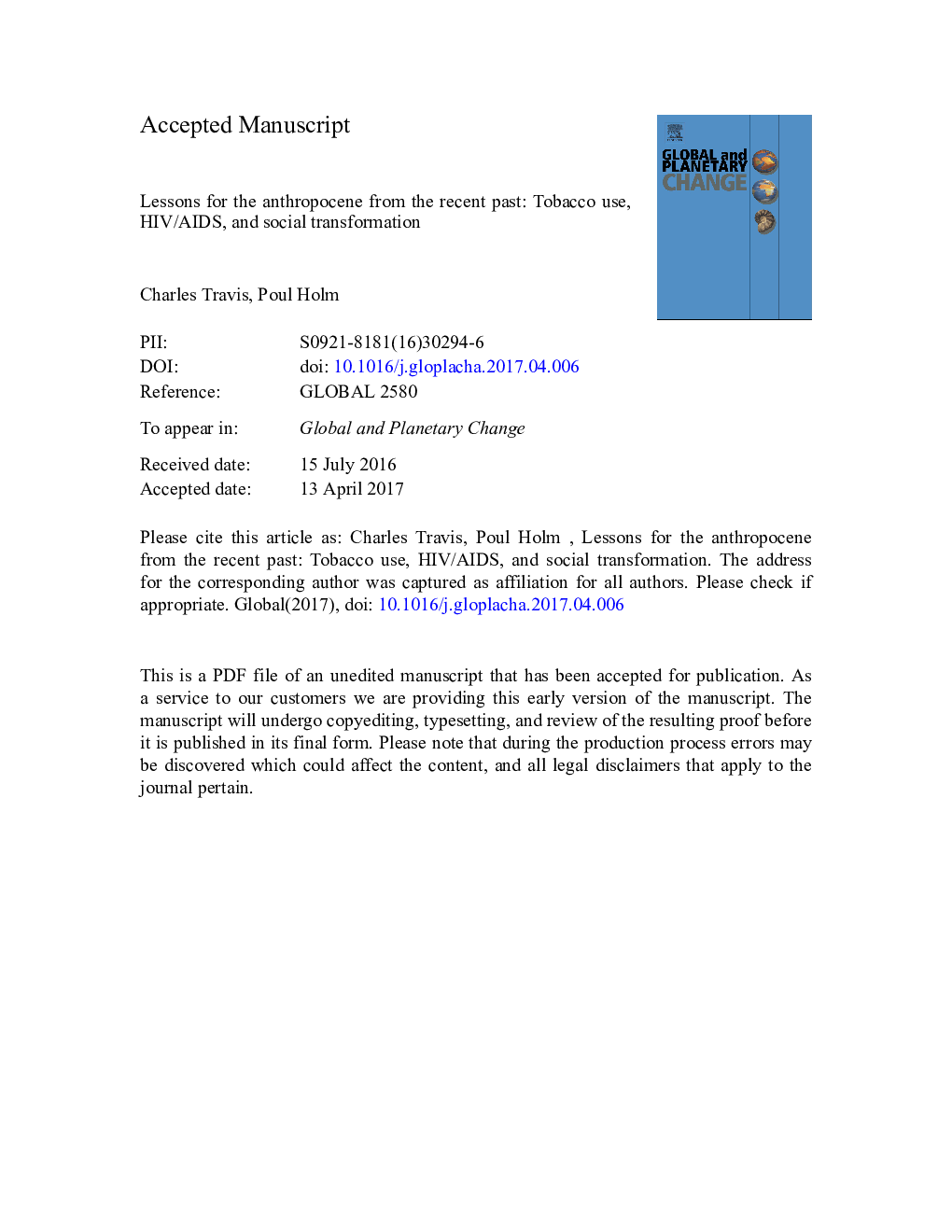| Article ID | Journal | Published Year | Pages | File Type |
|---|---|---|---|---|
| 5755235 | Global and Planetary Change | 2017 | 30 Pages |
Abstract
In light of the dilemma of global climate change that we have presented ourselves with in the twenty-first century and beyond, many researchers express despair at the ability of humans and societies to change behavior. The paper identifies how global humanity at individual, institutional, and governmental levels have addressed life-threatening dangers in the recent past and begun processes of long-term corrective action. The paper thus discusses global social transformations from the recent past in regards to tobacco use and HIV/AIDS, to think about how Hannah Arendt's concept of the Polis detailed in The Human Condition (1958) may be engaged to address the human dimensions of climate change. As an output of the Andrew W. Mellon European Observatory of the New Human Condition, this paper's focus is commensurate with the thrust of this special issue of Global and Planetary Change which considers climate change to be more of a crisis in the human condition than an environmental problem. Arendt's concept of the Polis provides a framework for a better understanding of change in behavior, preference and motivation. We argue that her perspectives are central to developing multi and inter-disciplinary humanities, social science, science and business perspectives to mobilize collective human action towards adapting to and mitigating the social and environmental threats of global climate change.
Related Topics
Physical Sciences and Engineering
Earth and Planetary Sciences
Earth-Surface Processes
Authors
Charles Travis, Poul Holm,
